| Intl. Notebook | Feb 21 2022 |


 people must pay them, yet the rich and powerful somehow always manage to avoid their fair share, even when they've generated their loot through illegal or even genocidal means. As with many morally rudderless institutions and people, what Swiss banks do is perfectly legal, but “perfectly legal” is the phrase uttered by people who know they're willfully engaged in behavior that obviously should be illegal—and in fact is illegal for everyone but the rich and connected.
people must pay them, yet the rich and powerful somehow always manage to avoid their fair share, even when they've generated their loot through illegal or even genocidal means. As with many morally rudderless institutions and people, what Swiss banks do is perfectly legal, but “perfectly legal” is the phrase uttered by people who know they're willfully engaged in behavior that obviously should be illegal—and in fact is illegal for everyone but the rich and connected. came out of jail not disgraced and shunned, but welcomed, feted, and once again demanding and receiving VIP treatment, the best tables in the best restaurants, and the ear of the global elite. He threw a few coins to charity along the way to spit-shine his reputation, had his thriving conglomerate Talaat Moustafa Group donate some COVID vaccines, but still he's a murderer who wriggled loose from the hangman's noose, and today enjoys every privilege he ever enjoyed—while his victim is dead forever.
came out of jail not disgraced and shunned, but welcomed, feted, and once again demanding and receiving VIP treatment, the best tables in the best restaurants, and the ear of the global elite. He threw a few coins to charity along the way to spit-shine his reputation, had his thriving conglomerate Talaat Moustafa Group donate some COVID vaccines, but still he's a murderer who wriggled loose from the hangman's noose, and today enjoys every privilege he ever enjoyed—while his victim is dead forever.| Vintage Pulp | Mar 16 2020 |

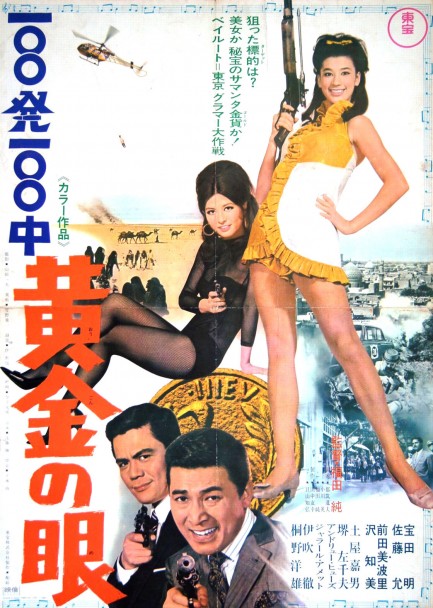
 Must dodge hook.
Must dodge hook.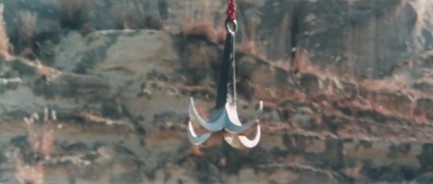 Must dodge hook. Must dodge hook.
Must dodge hook. Must dodge hook. Really must dodge hook!
Really must dodge hook!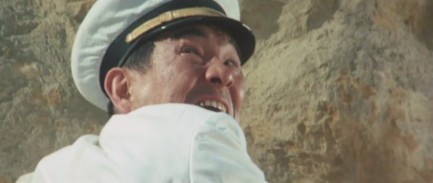 Must dodge hook! Must dodge hook!
Must dodge hook! Must dodge hook!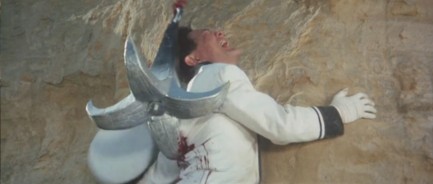 Oww! Motherfuck me!
Oww! Motherfuck me!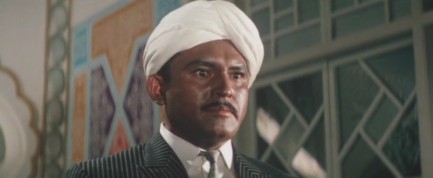 Anyone got more shoe polish? Lebanese Brown if you have it. I ran out before I finished my ears.
Anyone got more shoe polish? Lebanese Brown if you have it. I ran out before I finished my ears.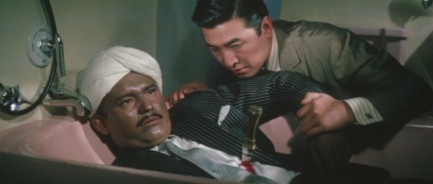 The irony is he told me he'd learned he was being racist and came up here to wash it off in the bath. Ten more minutes and there'd have been no justification for this.
The irony is he told me he'd learned he was being racist and came up here to wash it off in the bath. Ten more minutes and there'd have been no justification for this.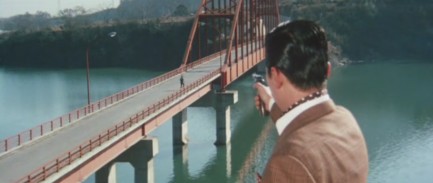 I can hit anything with this pistol.
I can hit anything with this pistol.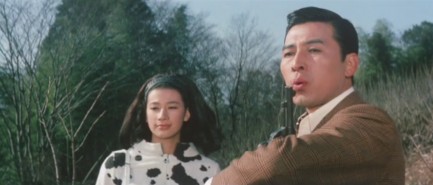 Including d-flat. Here, listen. Isn't that cool?
Including d-flat. Here, listen. Isn't that cool?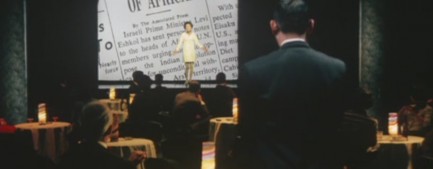 Wait until you hear Miss Tomoni sing, Mr. Stonefeller. This will blow your mind. She's considered the Bob Dylan of Tokyo because of her incisive and politically relevant lyrics.
Wait until you hear Miss Tomoni sing, Mr. Stonefeller. This will blow your mind. She's considered the Bob Dylan of Tokyo because of her incisive and politically relevant lyrics.
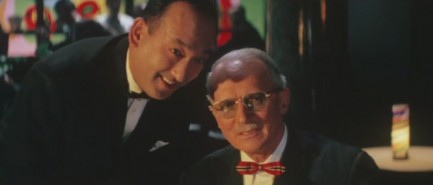 You're right, she's amazing. And though I'm blind, and technically shouldn't be able to see her, I also find it incredible how she changes costumes multiple times mid-song like that.
You're right, she's amazing. And though I'm blind, and technically shouldn't be able to see her, I also find it incredible how she changes costumes multiple times mid-song like that.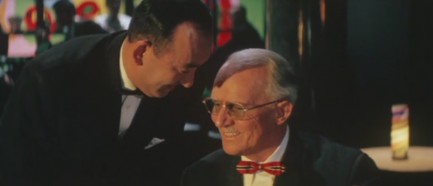 Oh, that's nothing. The midnight show she goes full frontal. Maybe your off-and-on vision will be on around then.
Oh, that's nothing. The midnight show she goes full frontal. Maybe your off-and-on vision will be on around then.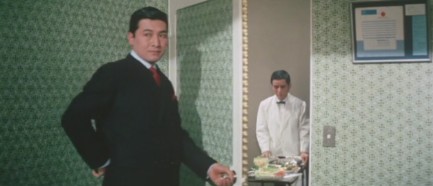 Room service, sir. You ordered two duck dinners?
Room service, sir. You ordered two duck dinners? Surprise! Duck à l'Agent Orange!
Surprise! Duck à l'Agent Orange!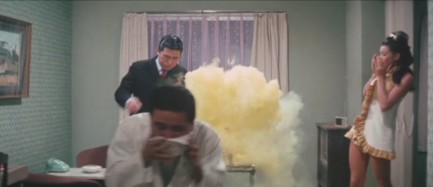 Gotta run! Hope you die! Go vegan! You can leave my tip on the nightstand!
Gotta run! Hope you die! Go vegan! You can leave my tip on the nightstand! Hi! Commercial Girl here. You haven't seen me for a while, right? Hate to interrupt, but I've been called by the Pulp Intl. girlfriends to put a stop to this endless post. The Pulp guys are on virus lockdown and it's making them a little loopy. But under threat of sexual boycott they're done for today. See you soon!
Hi! Commercial Girl here. You haven't seen me for a while, right? Hate to interrupt, but I've been called by the Pulp Intl. girlfriends to put a stop to this endless post. The Pulp guys are on virus lockdown and it's making them a little loopy. But under threat of sexual boycott they're done for today. See you soon!| Intl. Notebook | Mar 26 2019 |

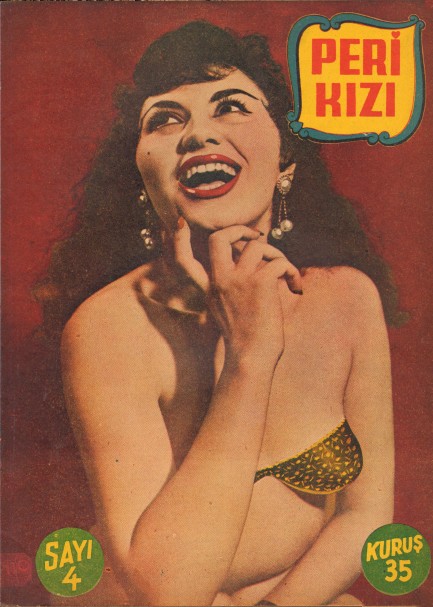
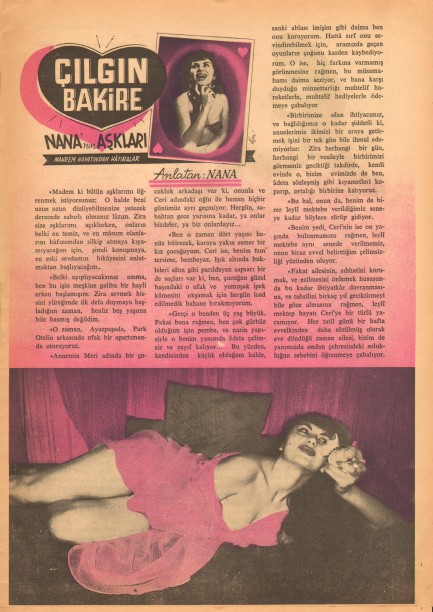
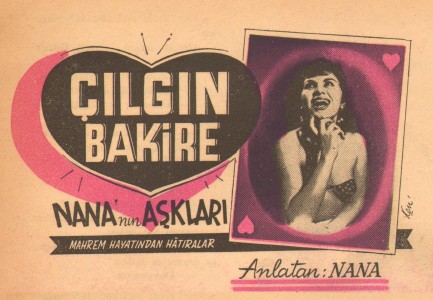
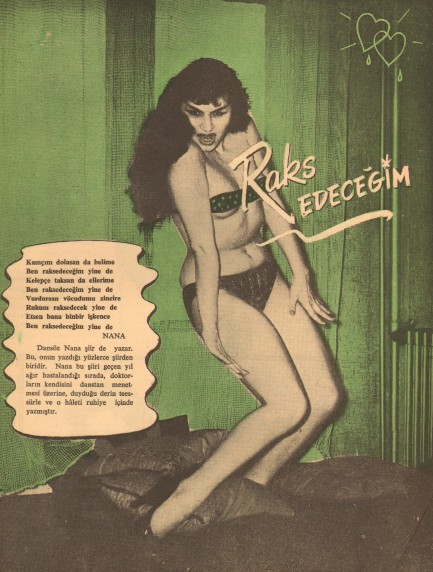
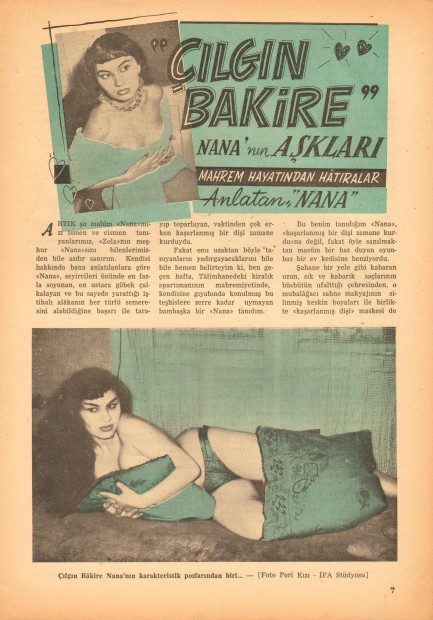
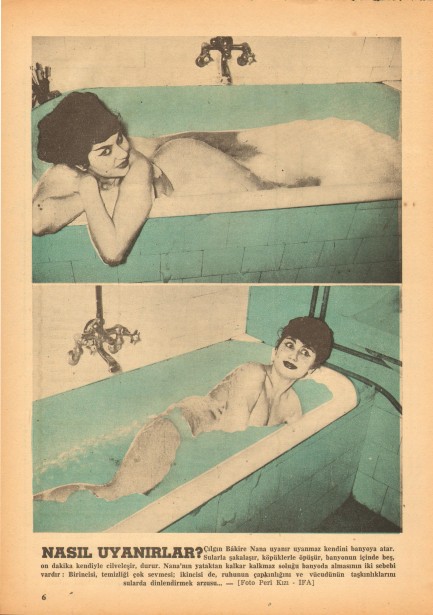
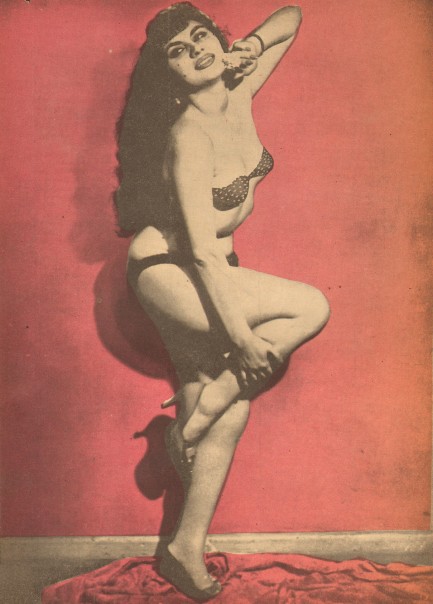
| Vintage Pulp | Nov 27 2018 |

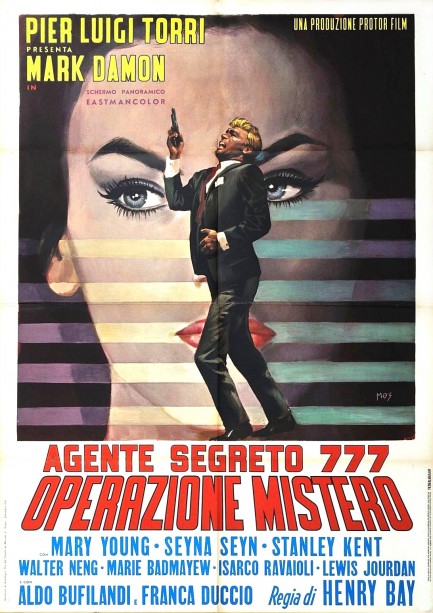
Above you see a Mario de Berardinis poster painted for the Italian spy thriller Agente segreto 777 - Operazione Mistero, known in English merely as Secret Agent 777. The plot of this revolves around a doctor's cell regeneration process—i.e. he can bring people back to life, a miracle somehow made possible through nuclear physics. No, it didn't make sense to us either. But all you need to know is that basically Agent 777 is a low rent James Bond rip-off with a touch of updated Frankenstein mixed in.
It's as silly as it sounds, and has too many problems to enumerate, but we did enjoy the Beirut setting, and it rather amused us when a character spoke of going to the “Portuguese colonies to find his fortune.” Back then that meant going to Angola or Mozambique and extracting something of value that rightfully belonged to the local people—oil, antiquities, jewels, anything. The sequence struck us because at the time Agent 777 was extracting something of value from us—our patience. It premiered in Italy today in 1965.
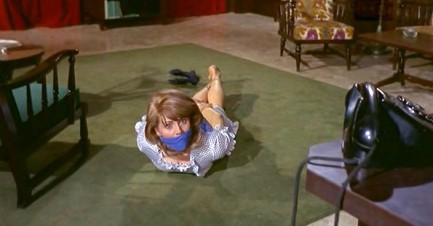 Help! I'm trapped in this terrible film and I can't get out!
Help! I'm trapped in this terrible film and I can't get out!
| Hollywoodland | Oct 14 2017 |

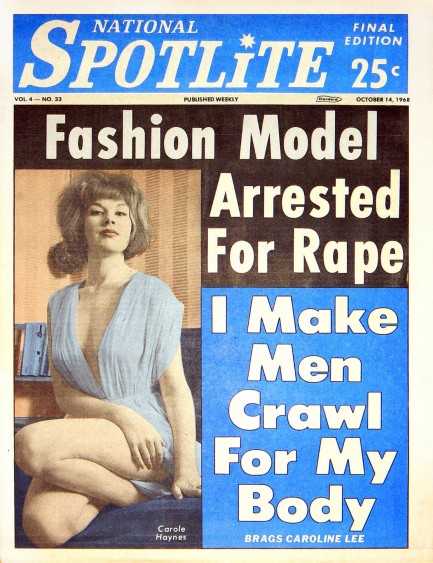
We're back to National Spotlite with a cover published today in 1968. The photo is of actress Carolyn Haynes, and a headline goes to actress Caroline Lee, who says she makes men crawl for her sexual favors. The money quote: “If women use their bodies the right way they can be the most powerful people on Earth.” A quote like that sounds suspiciously like it was fabricated by a man, and in fact while several Caroline Lees appear on IMDB, none fit the profile required to have done this interview—i.e. born sometime in the 1940s or possibly in 1950. National Spotlite is busted again. The editors simply could never have imagined a globally accessible actor database. We also did a search on Haynes and likewise learned she never existed
But some of the celebs are real. In Spotlite's “Dateline: The World” feature readers are treated to a photo of Chris Noel. It's been a long time since we've seen her—eight years to be exact. Spotlite tells us she smashed a vase over the head of a nightclub employee when he tried to force his way into her dressing room in Sydney one night. “The man attempted to romance her but she spurned every overture he made. When he tried to use violence to get his way she spilt open his skull.” We found no mention of the incident in any other source, but we like the story for how it turns out. If her assailant had known anything at all about Chris Noel he'd have rememberd her publicity tours of Vietnam and realized she was one tough celeb.
“Dateline: The World” next regales readers with a tale out of Africa. "Cary Grant arrived in Nairobi to join a hunting safari and has been escorting two six-foot dark-skinned native girls to whatever cafes in town they can get into, and has caused quite a bit of controversy by doing so. Grant traded punches with a man in one spot when the gent took offense at Cary's dates. Cary flattened the man, but the stranger rose to his feet flashing a knife and only the quick efforts of the bartender and cafe owner averted further trouble for the star. Cary and the girls fled while the others were subduing the knife wielder."
Paris: "Juliette Prowse was detained the other night after she threw a make-up case through the window of a drug store. She had purchased some cosmetics at the American Drug on the Champs-Élysées, but brought the order back the same night. She claimed that she'd made a mistake and didn't need the cosmetics. The salesman explained that he would exchange the merchandise or give Prowse credit, but no cash refund. Juliette roared out of the place. Outside she hurled her make-up case through the store's front window. Two policemen saw her smash the window and nabbed her on the spot."
Beirut: "David Niven and wife Hjordis ran into an embarrassing situation in a night spot while making the cafe rounds in this Lebanese city. A belly dancer took such a fancy 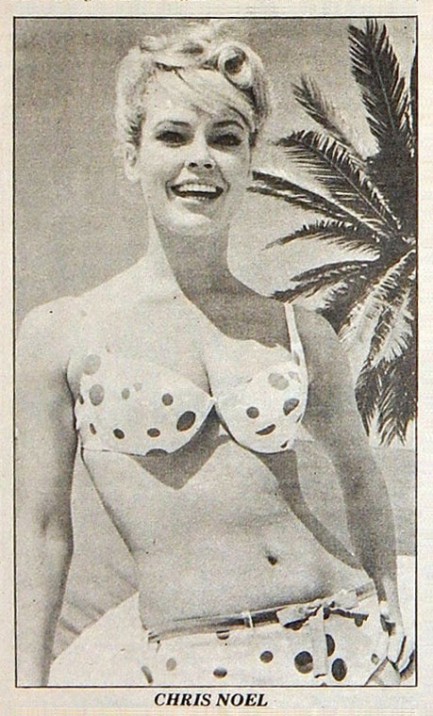 to David that she did her act for him alone. She even sat on his lap. The patrons objected to her performing for just one man and began to throw things at her and at Niven. David and Hjordis ran for the exits after he pushed the girl off his lap."
to David that she did her act for him alone. She even sat on his lap. The patrons objected to her performing for just one man and began to throw things at her and at Niven. David and Hjordis ran for the exits after he pushed the girl off his lap."
Capri: "Noel Coward is nursing bruises on his face. He says he was attacked by two young men while he was out strolling one night. The muggers made off with a pair of cuff links given to him by Raquel Welch and a watch from Greta Garbo. Coward was found half-conscious and bleeding."
You get the gist—celebs in trouble. Back during the heyday of tabloids Confidential had bellhops, bartenders, chauffeurs, maîtres d'hôtel, and cops by the hundreds phoning in hot tips, but Spotlite was never more than a second tier rag and could not have had the resources to uncover the above stories. Therefore the editors either made them up or lifted them from other tabloids. We suspect the latter—with the stories ginned up for entertainment value. Cary Grant in Nairobi with two Kenyan escorts? We'll buy it. Grant risking his million dollar mug in a fistfight? Improbable. But the stories sure are fun. See more from National Spotlite by clicking here.
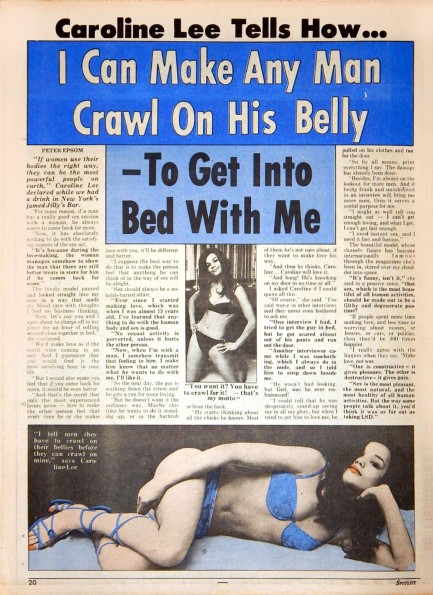
| Intl. Notebook | Sep 7 2017 |

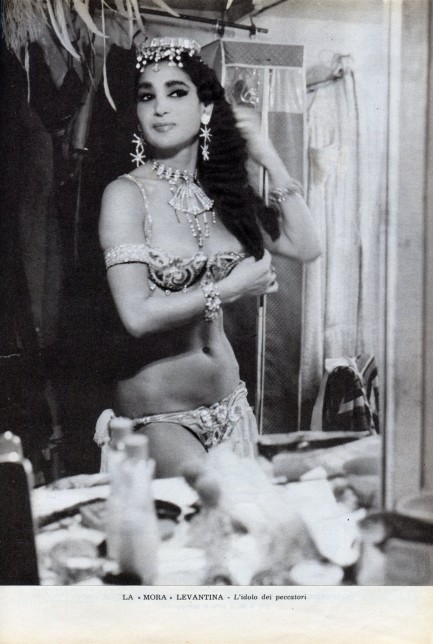
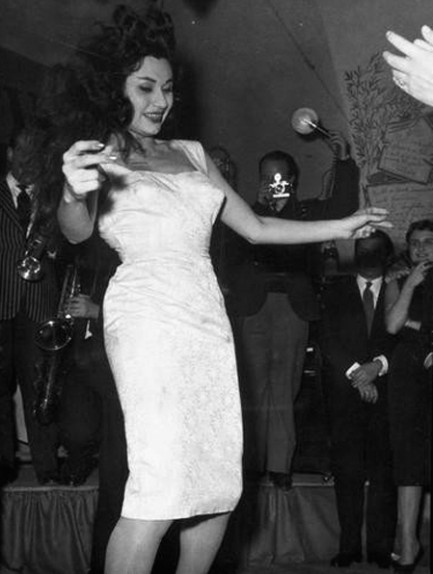
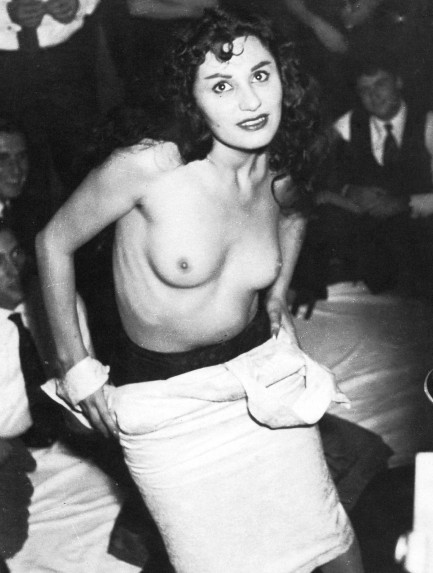
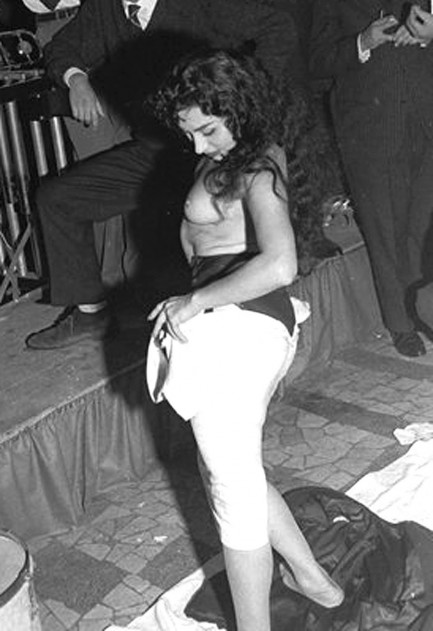
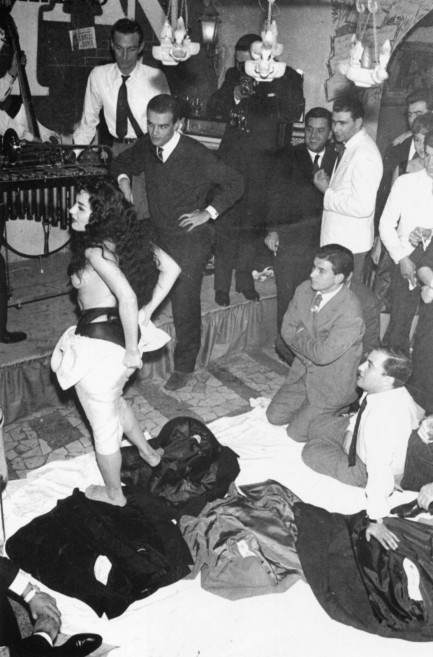
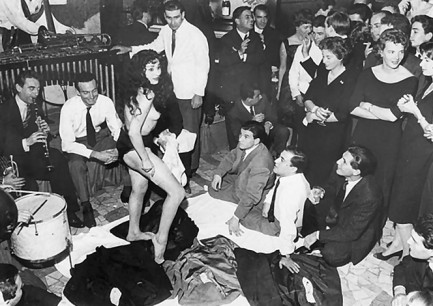
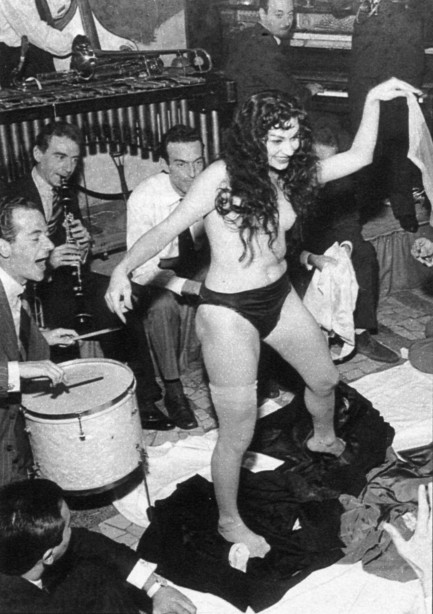
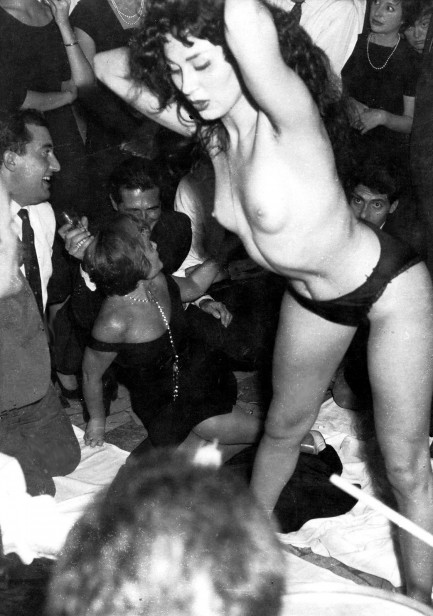
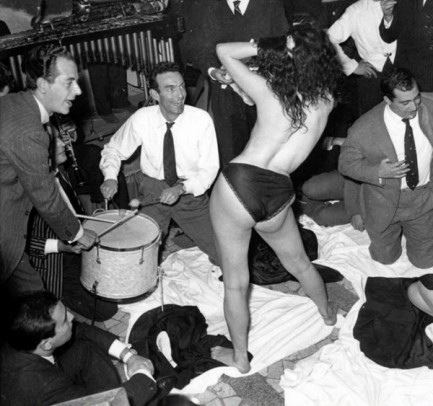
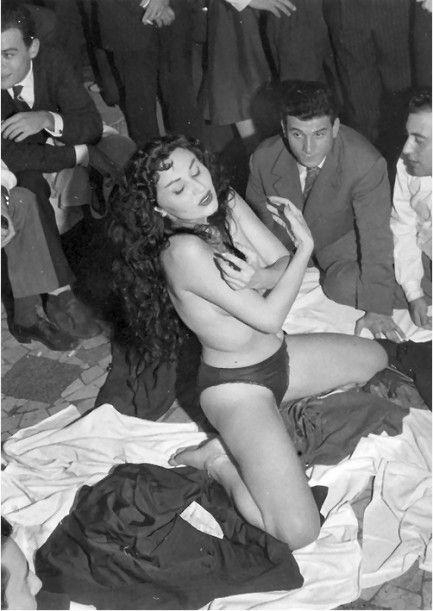
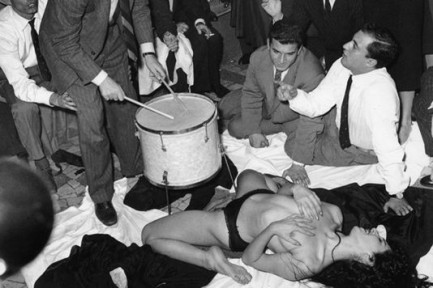
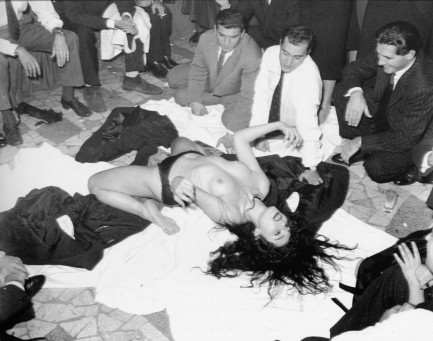
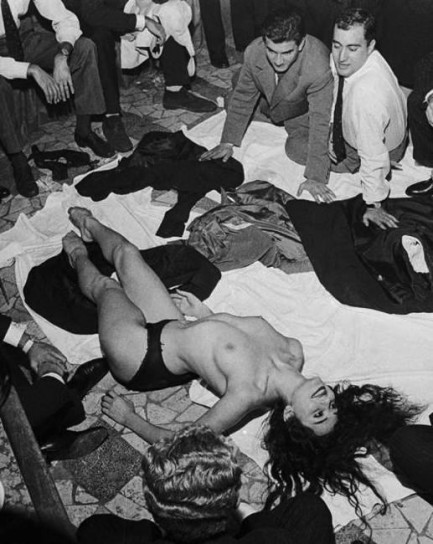
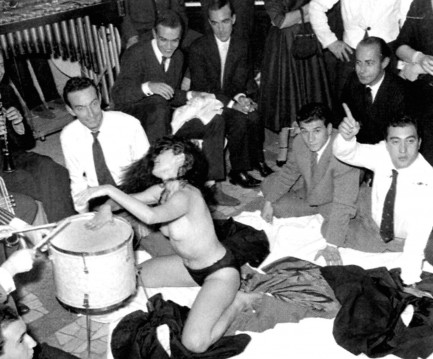
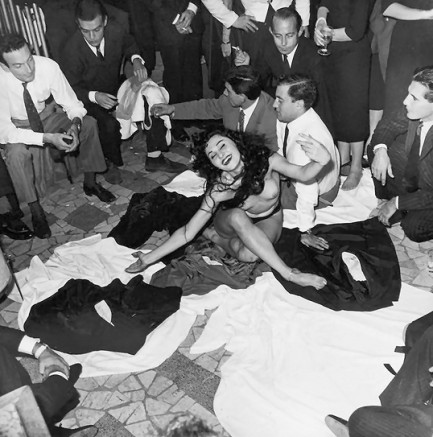
| Intl. Notebook | Jun 11 2017 |



As long as we're on the subject of vintage mags, above are two curiosities we ran across on an auction site. These are covers for the Lebanese magazine الشبكة (we know that means nothing to 99.9% of you, but we just like the fact that we can actually put those characters on the website and they render perfectly). The western alphabet name of the magazine is Al Chabaka, and that means “the network.” We think. One of the Pulp Intl. girlfriends actually took a couple of Arabic classes several years back. We asked what it meant and she said, “Are you kidding? I don't remember a single thing.” So we'll go with The Network. And on the cover is Raquel Welch, who makes any network worth watching. These are from the mid-1970s.
| Vintage Pulp | May 24 2017 |


This chaotic West German poster for Der söldner des syndikats caught our eye for a couple of reasons. One was its sheer garishness, and the other was because the unknown artist depicted diminutive Mickey Rooney all swoll up like a Marvel Comics superhero. It just screams cheeseball classic, so we had to check out the film, which is known in English as 24 Hours To Kill. When a plane makes an emergency landing in Beirut the flight crew learns that one of their number (Rooney, decidedly un-swoll and unheroic) is hunted by a criminal smuggling syndicate he's double crossed. The repaired plane leaves in twenty-four hours, and the crew decide to protect Rooney until that time. Abandoning him is out, because he's a pal, and going to the police is out, because they'd be stuck in Beirut for days or weeks, thus making the syndicate's job easier.
 Intimidating movie poster Mickey.
Intimidating movie poster Mickey.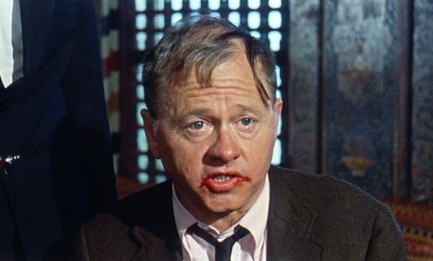 Not very intimidating movie Mickey.
Not very intimidating movie Mickey.| Intl. Notebook | Jun 29 2016 |

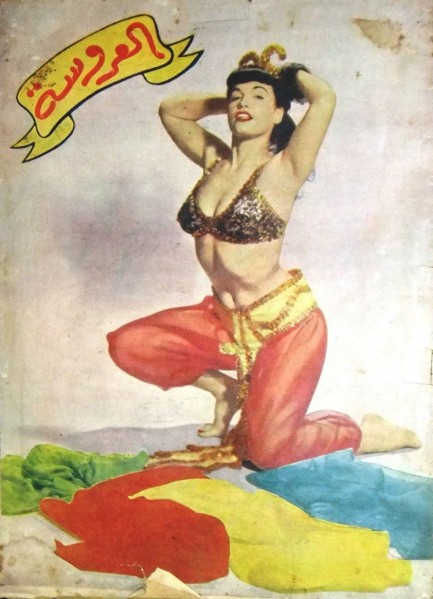
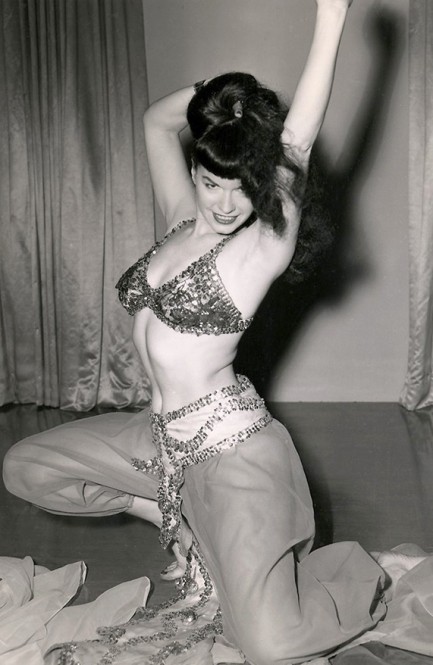 This tattered but still attractive Lebanese magazine is called Al Arousa, which means “the bride,” we think, and it dates from 1957. The seller says that's Spanish actress Isabel Mestres on the front cover, which shows what he knows—the star of this photo-illustration is obviously American model Bettie Page. There she is wearing the same ensemble at right.
This tattered but still attractive Lebanese magazine is called Al Arousa, which means “the bride,” we think, and it dates from 1957. The seller says that's Spanish actress Isabel Mestres on the front cover, which shows what he knows—the star of this photo-illustration is obviously American model Bettie Page. There she is wearing the same ensemble at right.| Vintage Pulp | May 12 2013 |

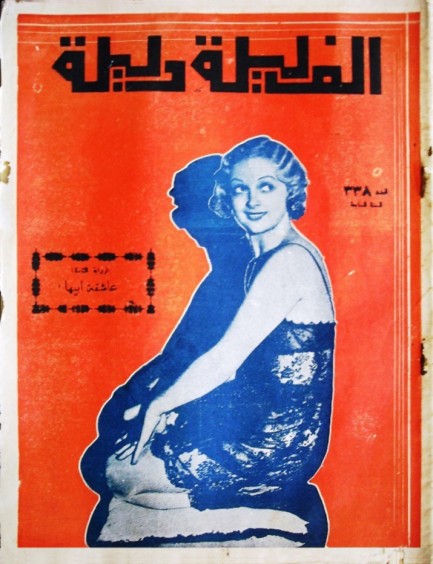
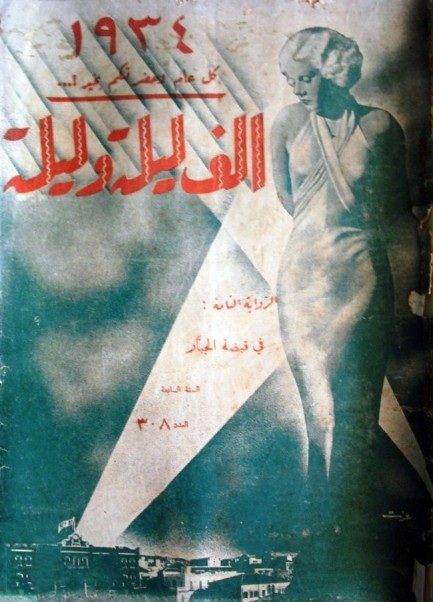
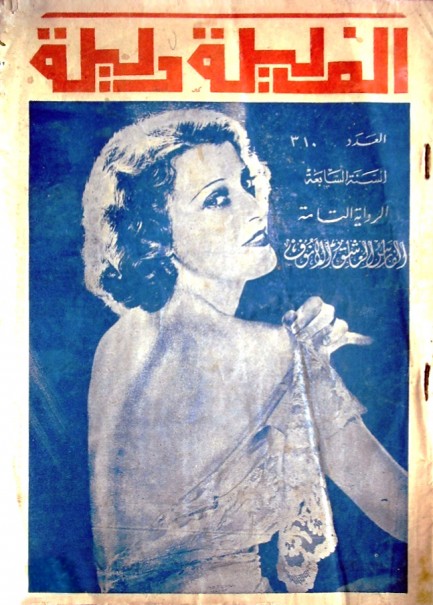
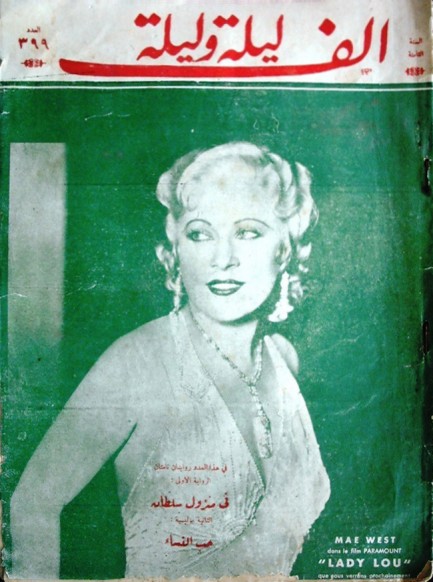
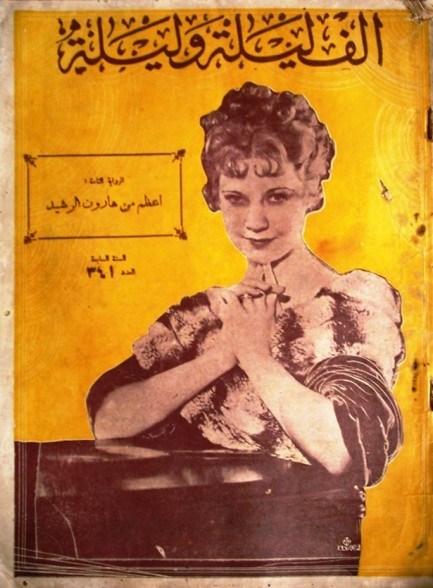
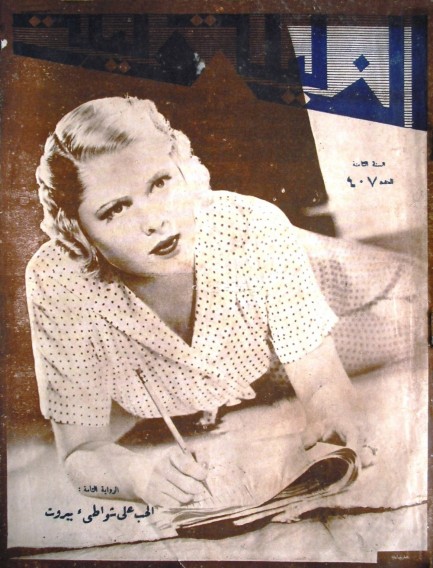
Above are six beautiful covers for the magazine Thousand and One Nights, which was published out of Beirut, Lebanon, a city that was once known as the Paris of the Middle East. These issues are all circa mid-1930s, when the country was under French control. We don’t recognize all the actresses, but we can identify Jean Harlow in panel two and Mae West in panel four (no big trick there, since her name actually appears in English). You may remember we shared some covers from another magazine of the same name published in Japan. If you missed that, maybe click over there and have a look. It’s well worth it. As for the Lebanese Thousand and One Nights, we found about two dozen issues and they’re all quite interesting, especially the way the logo design changes each time. We’ll share more of these down the line.





































































